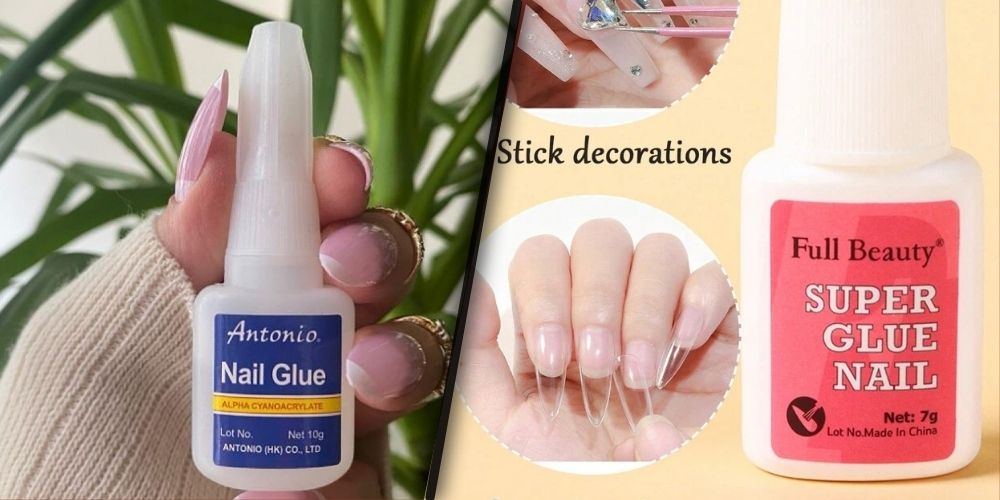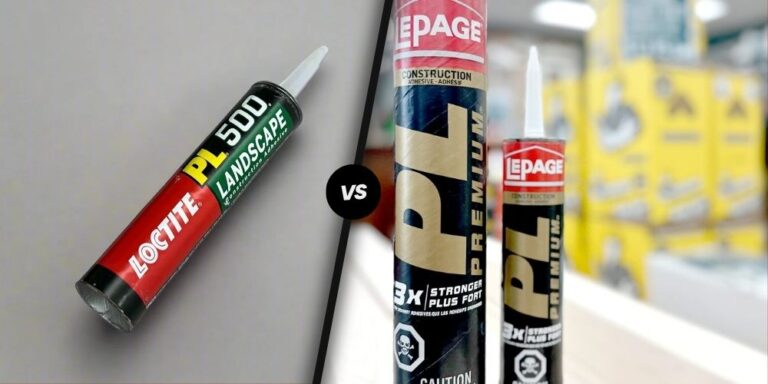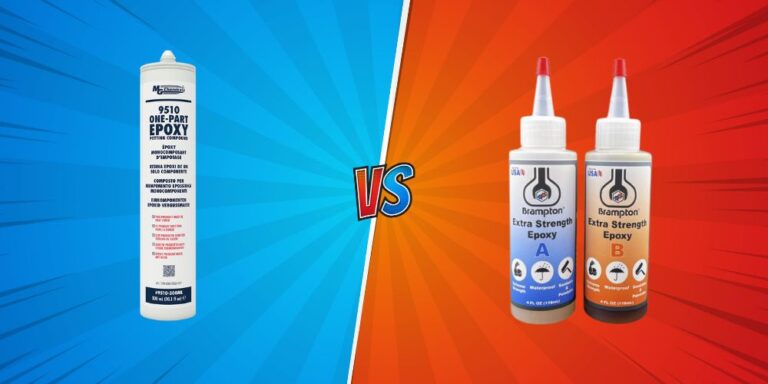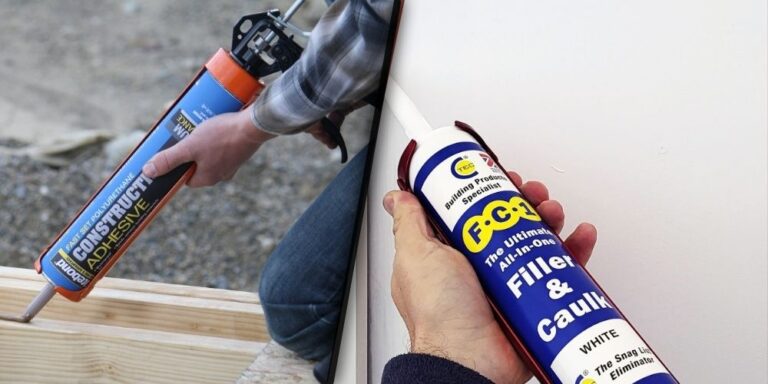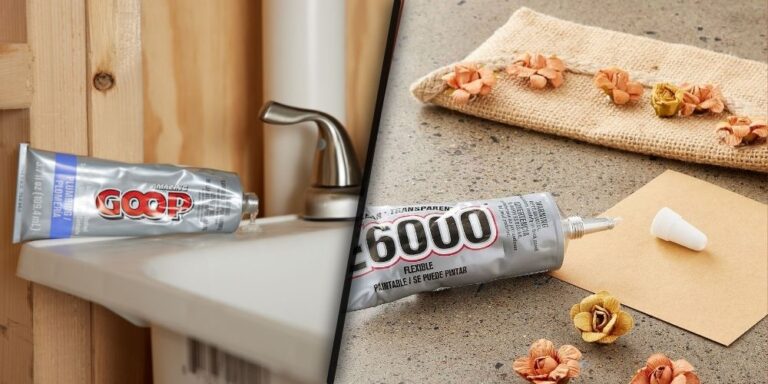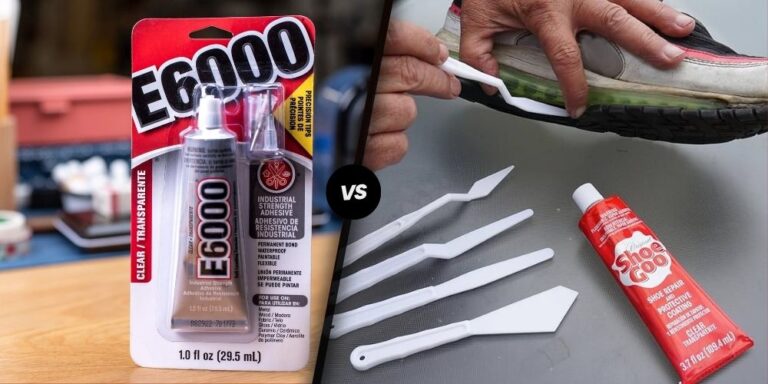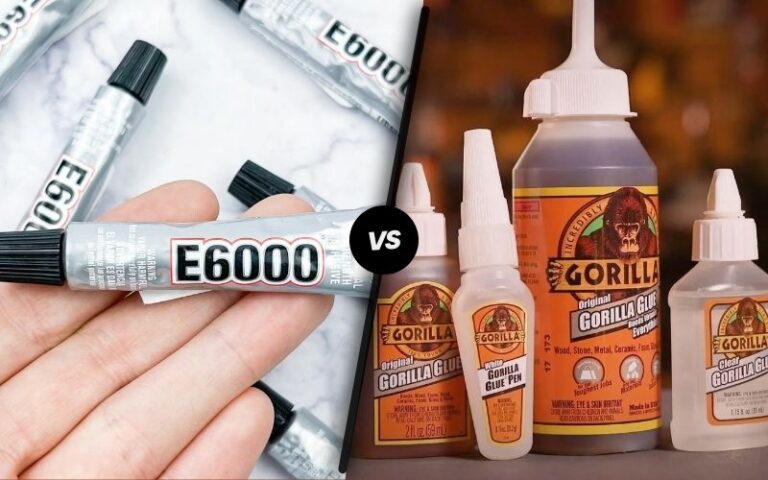Nail Glue vs. Super Glue: Which Works Better for Nails?
Understanding Nail Glue vs Super Glue
When considering adhesives for nail applications, understanding the distinct properties of nail glue and super glue is essential. Here we delve into their chemical composition and differences in viscosity to elucidate their unique characteristics.
Chemical Composition
Both nail glue and super glue share the same primary chemical component: cyanoacrylate. This substance is known for its rapid bonding properties and is even used in medical applications, such as sutureless wound closures (Quora).
Despite their shared ingredient, the formulation of each glue is designed for specific uses. Nail glue is particularly formulated for use on nails, ensuring it is both safe and effective for this delicate application. In contrast, super glue is a versatile adhesive used for a variety of purposes, which can sometimes be less forgiving on nails if not properly removed, potentially compromising nail health.
| Glue Type | Primary Ingredient | Common Uses |
|---|---|---|
| Nail Glue | Cyanoacrylate | Fake nails, nail repairs |
| Super Glue | Cyanoacrylate | Household repairs, industrial uses |
Differences in Viscosity
One of the key differences between nail glue and super glue lies in their viscosity. Nail glue is tailored to have a specific viscosity that makes it more flexible and durable for nail applications. This specialized formulation allows it to adhere tightly to nails while providing some give, reducing the chances of the nails breaking or becoming damaged.
Super glue, on the other hand, has a more general formulation designed for a wide range of applications. While it offers strong adhesion, it may not have the flexibility required for prolonged wear on nails. This rigidity can lead to a higher likelihood of the adhesive causing damage when used on nails, such as weak and sensitive nails if not removed correctly (Quora).
In summary, while both nail glue and super glue contain cyanoacrylate, nail glue is better suited for nail applications due to its tailored viscosity and flexibility. Super glue, while versatile and strong, may not provide the same durability and safety for use on nails.
For comparisons of other adhesives, you might find articles like krazy glue vs. super glue or gorilla glue vs. super glue helpful.
Practical Use of Nail Glue
When comparing nail glue vs. super glue for practical applications, nail glue stands out due to its tailored design for cosmetic use and its compatibility with skin and artificial nails. Let’s dive into how nail glue is used on artificial nails and the safety features it offers for skin.
Application on Artificial Nails
Nail glue is specifically formulated for attaching artificial nails, such as plastic or acrylic fake nail tips. Its consistency and composition make it ideal for securing nail enhancements without causing damage to your natural nails.
To apply nail glue on artificial nails:
- Prepping the Nails: Clean and buff your natural nails to create a smooth surface. Make sure your nails are dry before applying the glue.
- Applying the Glue: Apply a thin layer of nail glue directly on the fake nail tip or the natural nail surface. Ensure even distribution to avoid air bubbles.
- Press and Hold: Place the artificial nail onto your natural nail and press down firmly for 10-15 seconds. This ensures a strong bond.
- Trim and Shape: Once the glue is set, you can trim and shape the artificial nails as desired.
| Feature | Nail Glue | Super Glue |
|---|---|---|
| Formulation | Designed for nails | Industrial use |
| Consistency | Flexible | Rigid |
| Skin-Safe | Yes | No |
Safety Features for Skin
One of the primary advantages of nail glue over super glue is its safety profile for skin contact (NailsNX). Nail glue is designed to hold up in the cosmetic world, offering flexibility and reducing the risk of skin irritation.
Key safety features:
- Skin Compatibility: Nail glue is formulated with ingredients that are less abrasive to the skin. This allows for safe application around the nail bed and cuticles.
- Flexibility: Unlike super glue, nail glue remains flexible even after drying. This reduces the risk of glue becoming too rigid and causing discomfort or damage to the natural nail.
- Ease of Use: Nail glue typically comes with applicator tips designed for precise application, minimizing the risk of excess glue on the skin.
It’s crucial to always follow proper procedures to avoid any mishaps or skin irritations. For additional information on the importance of using the right adhesive, check our article comparing different adhesive options like loctite 221 vs. 222 and loctite 242 vs. 243.
Using nail glue optimally ensures that your fake nails stay in place while maintaining the health and integrity of your natural nails. Always choose the right adhesive to make your nail enhancement experience safe and satisfying.
Comparing Strength and Flexibility
In the debate of nail glue vs. super glue, understanding their strength and flexibility is vital for determining which adhesive is better suited for nail applications.
Adhesion to Nails
Both nail glue and super glue are strong adhesives containing cyanoacrylate. Despite this shared component, they differ in their intended applications and properties. Nail glue is specifically designed for use on artificial nails, offering better flexibility and a bond tailored for nail applications (NailsNX). Super glue, on the other hand, provides a rigid and more permanent bond, which may not be ideal for nails due to its inability to flex with the natural movements of the nails.
Consider the following comparison in terms of adhesion strength and flexibility:
| Adhesive | Intended Use | Adhesion Strength | Flexibility |
|---|---|---|---|
| Nail Glue | Artificial Nails | High | High |
| Super Glue | Industrial and Non-Cosmetic | Very High | Low |
Nail glue’s flexibility ensures that the bond can withstand daily activities without causing damage to the nails. Super glue’s lack of flexibility may result in cracks or breaks, making it less suitable for this purpose.
Effects on Nail Health
When considering the health of your nails, the choice between nail glue and super glue becomes clearer. Nail glue is formulated with safety features for skin contact, reducing the risk of irritation and offering a more gentle formula for your nails. Super glue, although strong and quick-drying, may be too harsh due to its rigidity and lack of flexibility.
The impact of each adhesive on nail health can be summarized as follows:
| Adhesive | Nail Health Impact | Safety Features |
|---|---|---|
| Nail Glue | Minimal Damage | Formulated for Nails |
| Super Glue | Potential Damage | Not Formulated for Nails |
For those concerned with maintaining healthy nails, nail glue is the superior option. Its formulation not only ensures a strong bond but also prioritizes the health of your natural nails. Super glue, designed for industrial purposes, does not incorporate the necessary features to protect and preserve nail health.
Choosing the right adhesive is crucial for achieving the best results and maintaining nail health. While super glue might be more versatile for various purposes, nail glue’s flexibility and safety features make it the better choice for nail applications. For more detailed comparisons with other adhesives, explore our articles on krazy glue vs. super glue and wood glue vs. super glue.
Choosing the Right Adhesive
Nails vs Industrial Uses
When comparing nail glue and super glue, it’s essential to consider their intended purposes and applications. Nail glue is specifically designed for gluing on artificial nails, such as plastic or acrylic nail tips. It is formulated to be flexible and safe for use on nails and skin. This makes it an ideal choice for cosmetic purposes.
| Adhesive Type | Intended Use | Flexibility | Safety for Skin |
|---|---|---|---|
| Nail Glue | Artificial Nails | High | High |
| Super Glue | Industrial Applications | Low | Low |
On the other hand, super glue is better suited for industrial and non-cosmetic uses where a permanent, rigid bond is needed. Although it can create a strong bond, it may be too harsh for nails due to its lack of flexibility. Using super glue on nails can lead to brittleness and damage.
For those interested in industrial adhesive comparisons, our articles on loctite 221 vs. 222 and loctite 242 vs. 243 can be helpful resources.
Importance of Flexibility
Flexibility is a crucial factor when choosing the best adhesive for nails. Since nails are naturally flexible, the adhesive must accommodate this characteristic to prevent cracking or damage. Nail glue is specifically formulated to provide the needed flexibility, ensuring that the artificial nails can withstand everyday activities.
Super glue, however, lacks this flexibility. It forms a rigid bond that can lead to nail splitting or breakage when applied to nails. This rigidity makes super glue more suitable for industrial uses where a solid and unmoving bond is required.
For those considering adhesives for skin, it’s vital to avoid using nail glue or super glue, as they can cause irritation and potential allergic reactions. For safe skin adhesion, products like lash glue, spirit gum, or medical-grade adhesives are recommended (Quora). For more information on safe skin adhesives, visit our article on safe makeup adhesion.
Understanding these fundamental differences can help in selecting the proper adhesive for your needs, ensuring both effectiveness and safety. Explore our additional resources like ca glue vs. super glue for further insights into adhesive comparisons.
Special Considerations for Skin Use
Using adhesives like nail glue and super glue on the skin requires careful attention to ensure safety and avoid potential irritation or damage. Understanding the properties and formulation of these adhesives is crucial when considering their use on skin.
Skin Immobilizing Additives
Nail glue is formulated with skin immobilizing additives designed to lower the risk of burning or irritation when in contact with skin. These additives ensure that the glue remains flexible and safe to use on areas like the nails without causing harm. Super glue, on the other hand, contains a higher percentage of cyanoacrylate, making it less flexible and more durable, which can be problematic when used on the skin.
| Adhesive Type | Skin Immobilizing Additives | Flexibility |
|---|---|---|
| Nail Glue | Yes | High |
| Super Glue | No | Low |
This table highlights the presence of skin immobilizing additives and the flexibility of nail glue compared to super glue. For beauty applications, the formulation of nail glue makes it the safer option.
Avoiding Skin Irritation
Irritation is a common concern when adhesives come into contact with the skin. Nail glue is specifically designed for cosmetic use, meaning it is formulated to be less abrasive and harmful compared to super glue. It’s crucial to recognize that while nail glue is safer, it can still cause irritation if used improperly.
Another consideration is the method of removing these adhesives from the skin. Both nail glue and super glue can only be removed using acetone or similar harsh chemicals, which can cause micro-tears, scratches, and blisters, making it imperative to avoid skin contact whenever possible (Quora).
For those wondering about the use of adhesives in areas like makeup applications, it’s essential to choose products that are specifically designed for skin use. Alternative adhesives, such as those recommended for makeup (recommendations for makeup), provide a safer option and minimize the risk of skin damage.
By understanding the differences and special considerations for using nail glue and super glue on the skin, you can make informed decisions and prioritize safety. For more comparisons on industrial and cosmetic uses of various adhesives, check out loctite 221 vs. 222 or gorilla glue vs. super glue.
Safe Alternatives for Skin Adhesion
Recommendations for Makeup
When it comes to attaching items to the skin for makeup purposes, using nail glue or super glue is not recommended due to its potential to cause skin irritation and damage. Instead, safer alternatives exist that are specifically designed for skin use. Lash glue is a popular choice for attaching items such as gems, crystals, and glitter due to its gentle adhesion and easy removal.
Other recommended skin-safe adhesives include:
- Spirit Gum: Often used in theater and special effects makeup for its strong hold and relatively easy removal.
- Prosaide (Medical-Grade Adhesive): Known for its skin-friendly properties and strong adhesion, making it suitable for larger or heavier attachments.
When selecting the right adhesive, consider the weight, size, and placement of the item on the face to ensure it stays in place without causing discomfort.
Removal and Skin Safety
Proper removal of adhesives from the skin is crucial to avoid irritation, micro-tears, or other skin damage. Nail glue and super glue can be particularly harsh, requiring strong chemicals like acetone for removal. Acetone can cause dryness and irritation, making it unsuitable for the delicate skin of the face (Quora).
For safer alternatives, here are some removal techniques:
- Lash Glue: Gently peel off when ready. Any residue can be removed with warm water and a mild cleanser.
- Spirit Gum: Use a spirit gum remover, which is specifically formulated to dissolve the adhesive without irritating the skin.
- Prosaide: Use a specialized remover designed for medical-grade adhesives, followed by washing the area with a gentle soap to ensure all residue is removed.
To further ensure skin safety, always conduct a patch test before using any adhesive to check for potential allergic reactions. For comprehensive advice on adhesives and their safe removal, visit our articles on leak lock vs. loctite and loctite super glue vs. gorilla super glue.

